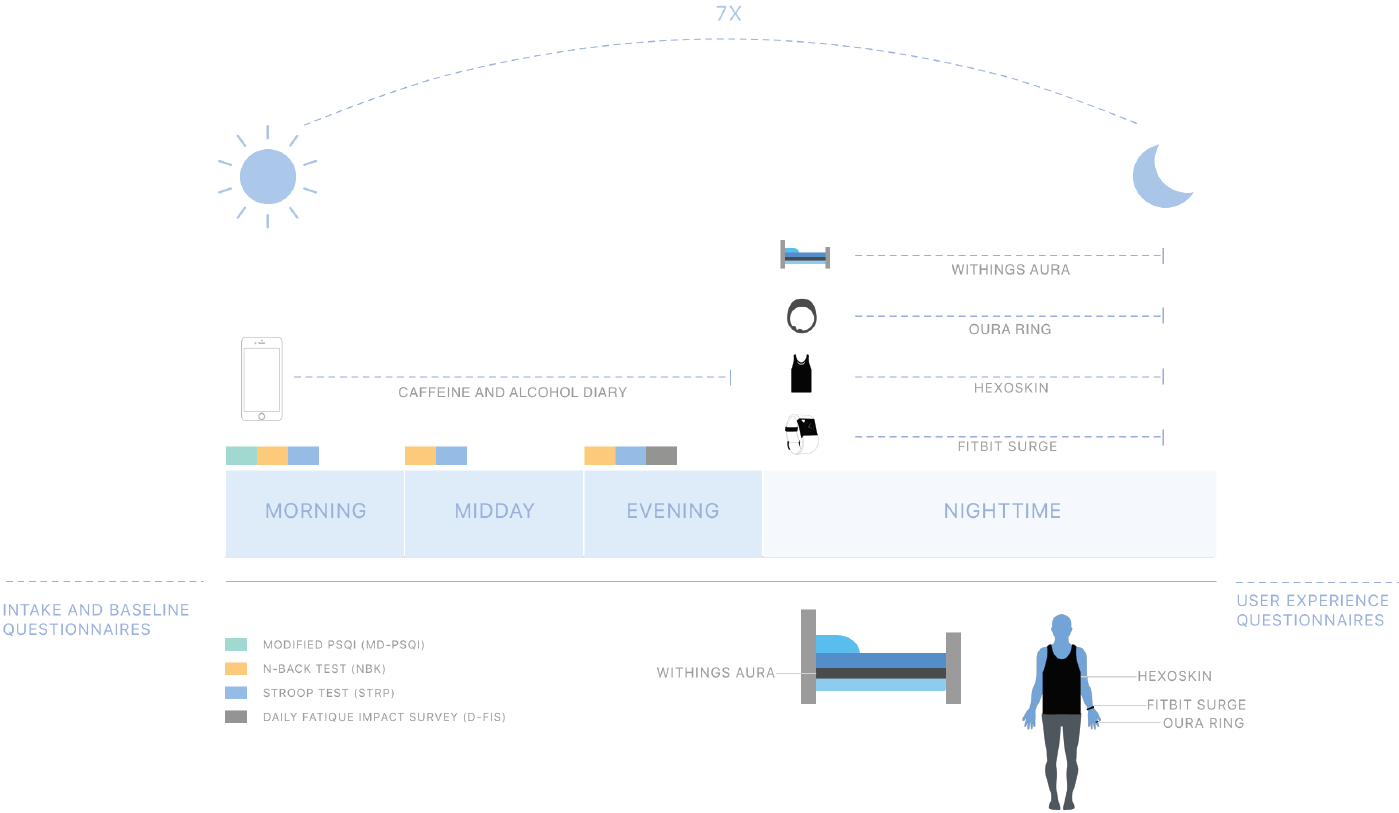Sleep quality has been directly linked to cognitive function, quality of life, and a variety of serious diseases across many clinical domains such as psychiatry and cardiology. Standard methods for assessing sleep involve overnight studies in hospital settings, which are uncomfortable, expensive, not representative of real sleep, and difficult to conduct on a large scale. Recently, a number of commercial digital devices have been developed that record physiological data which can act as a proxy for sleep quality in lieu of standard electroencephalogram recording equipment. Each device company makes different claims of accuracy and measures different features of sleep quality, and it is still unknown how well these devices correlate with one another and perform in a research setting. In this pilot study of 21 participants, we investigated whether outputs from four sensors, specifically FitBit, Withings Aura, Hexoskin, and Oura Ring, were related to known cognitive and psychological metrics, including the PSQI and N-back test. We found that sleep metrics extracted from these devices did not predict cognitive and psychological metrics well in our pilot data. However, we did identify certain signification associations, specifically the Oura Ring’s total sleep duration and efficiency in relation to the PSQI measure with p=0.004 and p=0.033, respectively. Additionally, correlation of various sleep features among the devices across the sleep cycle was almost uniformly low. These findings can hopefully be used to guide future sensor-based sleep research.

